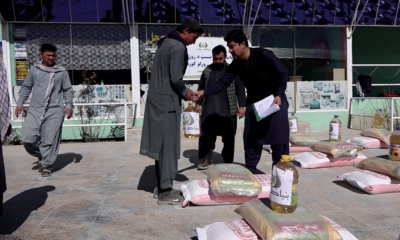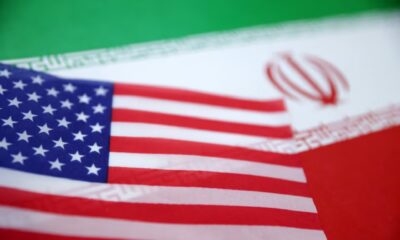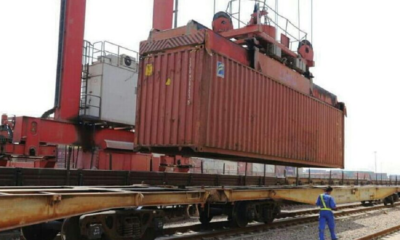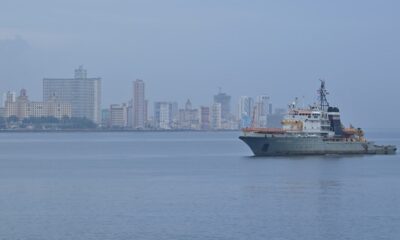Latest News
Afghanistan falls 34 places in World Press Freedom Index

Afghanistan moved 34 places down to No. 156 on a 2022 international ranking by Reporters Without Borders (RSF) released on Tuesday.
The media watchdog said the Islamic Emirate’s rise to power in Afghanistan has had serious repercussions for the respect of press freedom and the safety of journalists, especially women.
It said that 43 percent of Afghan media outlets disappeared in the space of three months after the fall of the previous government.
Of the 10,780 people working in Afghan newsrooms (8,290 men and 2,490 women) at the beginning of August, only 4,360 were still working in December (3,950 men and 410 women), or four out of ten journalists, the group said.
RSF said that more than four in five women have lost their jobs since the arrival of the Islamic Emirate of Afghanistan (IEA), whereas only one in two men have (52%).
According to the watchdog, the deteriorating economic condition has also undermined the media and made journalism more precarious.
RSF ranked 180 countries in the global press freedom index.
Norway holds the No.1 spot, followed by Denmark, Sweden, Estonia, Finland and Ireland.
Pakistan, Bangladesh, Saudi Arabia, Egypt, Syria, Iraq, China, Turkmenistan, Iran and North Korea are among countries that are placed after Afghanistan on the ranking.
Latest News
Bayat Foundation expands Ramadan aid to families in Ghazni province
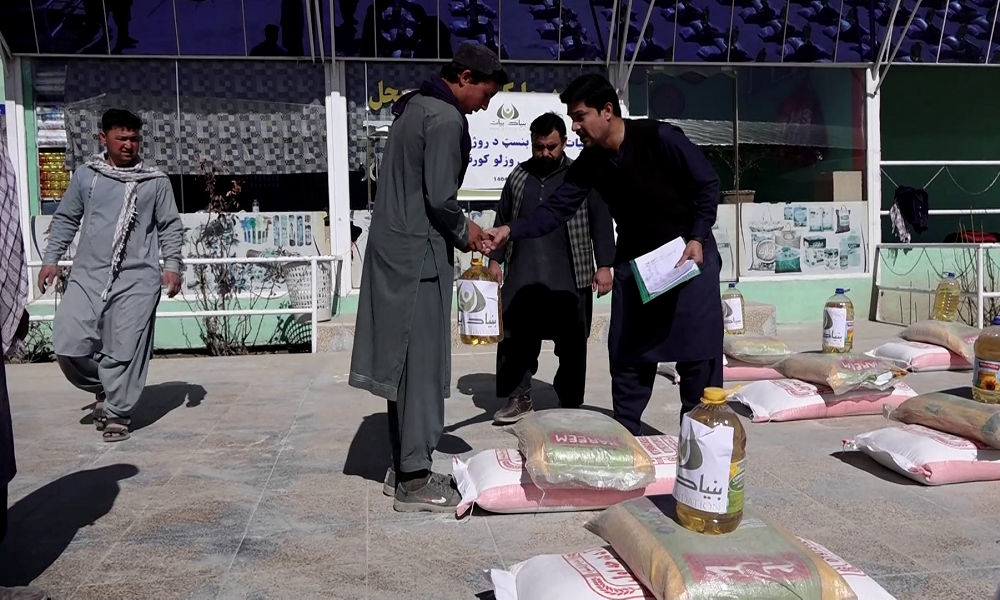
The Bayat Foundation has continued its Ramadan assistance campaign, distributing food packages to dozens of vulnerable families in Ghazni province, following similar efforts this week in Farah province.
The initiative forms part of the foundation’s broader humanitarian outreach during the holy month of Ramadan — a period marked by charity and community support — aimed at helping families facing severe poverty and economic hardship.
In Ghazni, aid packages containing flour, rice and cooking oil were distributed to underprivileged households after a needs assessment identified eligible beneficiaries, including migrant families and those without breadwinners.
Haji Mohammad Ismail, Deputy Head of the Bayat Foundation, said the Ghazni distribution is part of the organization’s annual Ramadan program carried out across multiple provinces.
“As part of the Bayat Foundation’s annual Ramadan assistance program, which is distributed every year during the holy month, we are pleased to be in Ghazni city today to distribute aid to a number of deserving migrant families,” he said, adding that the campaign is continuing in Kabul and other regions.
Earlier this week in Farah province, the foundation delivered similar food packages after survey teams assessed needs across various districts and villages.
Friadoon Abdullah, the foundation’s representative in Farah, said the aid was directed to the most vulnerable families identified through that process.
Established in 2006 by Dr. Ehsanullah Bayat, the Bayat Foundation is one of Afghanistan’s largest private charitable organizations.
Over the past two decades, it has implemented emergency relief efforts, seasonal food assistance programs, healthcare initiatives, educational support, and infrastructure projects, including the construction of mosques, health centers and schools, as well as providing access to clean drinking water in underserved communities.
Beneficiaries in Ghazni meanwhile expressed gratitude for the timely support.
“We are a family of six, we have no breadwinner, and we thank the Bayat Foundation for helping us,” said one recipient.
Another beneficiary said: “We are grateful to the Bayat Foundation for assisting us during the blessed month of Ramadan.”
Foundation officials say the Ramadan campaign will continue through the end of the holy month, with further distributions planned nationwide as part of its ongoing commitment to supporting vulnerable communities across Afghanistan.
Latest News
Iranian forces open fire on Afghan migrants, leaving dozens killed and injured

Dozens of Afghan migrants were killed or injured after Iranian forces opened fire on a vehicle carrying them in Sistan and Baluchestan province, local human rights group Haalvsh reported.
According to Haalvsh, the incident occurred on Tuesday, February 24, when Iranian forces chased the vehicle without issuing any legal warning to stop. The forces fired directly at the vehicle, causing it to overturn and catch fire.
Two people were killed, and more than 20 others were injured, six of them critically, the organization said.
International Sports
USA’s gold-medal Winter Olympics hockey game averages 26 million viewers
The contest, which began at 8:15 a.m. ET, was the most-watched sporting event on record in the U.S. with a start time before 9 a.m. ET, according to the Nielsen data.

The United States’ gold-medal victory against Canada on Sunday at the Milano Cortina Olympics averaged 26 million viewers in the U.S. on NBC and Peacock.
The 2-1 overtime win gave the Americans their first gold medal in men’s ice hockey since the 1980 Winter Olympics in Lake Placid, N.Y.
The North American audience when Jack Hughes scored the winning goal was nearly 35 million, including 8.7 million in Canada, per the Canadian Broadcasting Corporation.
The contest, which began at 8:15 a.m. ET, was the most-watched sporting event on record in the U.S. with a start time before 9 a.m. ET, according to the Nielsen data.
It also was the second most-watched hockey game in NBC history, trailing Canada’s overtime win against the U.S. in the gold-medal game at the 2010 Vancouver Games.
Overall, the Olympic Games in Italy averaged 23.5 million viewers in the U.S., a 96% increase over Beijing in 2022 and the most-watched Winter Olympics since 2014 in Sochi, Russia. – Reuters
-
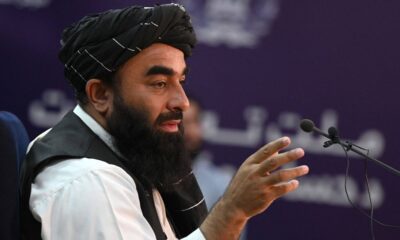
 Latest News5 days ago
Latest News5 days agoMujahid: Afghanistan will target perpetrators, not civilians
-

 Latest News4 days ago
Latest News4 days agoRussia estimates up to 23,000 terrorists present in Afghanistan
-

 Latest News5 days ago
Latest News5 days agoAfghanistan vows retaliation after Pakistan launches air strikes
-

 Latest News3 days ago
Latest News3 days agoIEA rejects Russia’s claims of foreign militants in Afghanistan
-
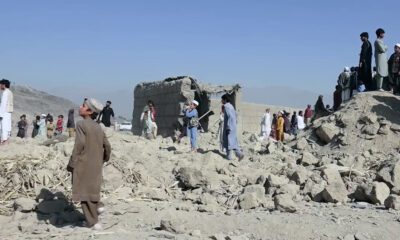
 Latest News4 days ago
Latest News4 days agoUNAMA reports civilian casualties from Pakistani airstrikes in Afghanistan
-
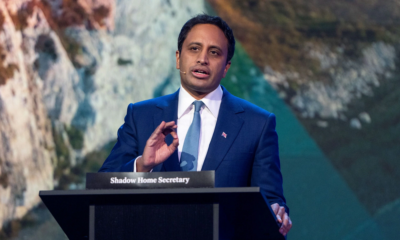
 Latest News4 days ago
Latest News4 days agoUK’s Reform party pledges visa ban affecting Afghanistan and five other states
-

 International Sports3 days ago
International Sports3 days agoAFC Champions League Elite gears up for Round of 16 as league stage concludes
-

 Sport2 days ago
Sport2 days agoRichard Pybus appointed as head coach of Afghanistan’s national cricket team




